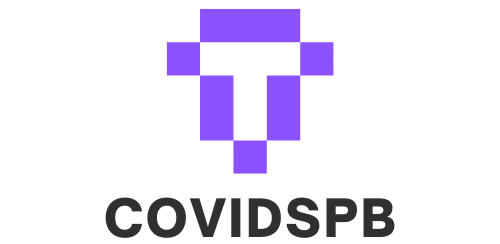How Can Phased Sleep Schedules Optimize Performance for International eSports Competitions?

In the highly competitive and rapidly growing world of esports, performance is key. From individual players to entire teams, each seeks to gain an edge over their competitors. Many factors can impact performance, including physical health, game strategy, training routines, and more. However, an often overlooked factor is sleep. As study after study has shown, sleep is critical to optimal performance. Just as physical athletes require rest and recovery time, so too do esports athletes.
The Importance of Sleep for eSports Players
Sleep is a vital part of maintaining good health for anyone, but for esports players, it can be a game-changer. Let’s dive deeper into the reasons why sleep is crucial for these athletes.
Also to discover : How to Design a Sport-Specific Rehabilitation Program for ACL Recovery in Soccer Players?
Research has shown that lack of sleep can significantly impact cognitive function, including attention, decision-making, and reaction time. These are all crucial skills for esports players who need to remain focused and responsive throughout long gaming sessions. A study published in the Journal of Sleep Research (DOI: 10.1111/jsr.12790) found that even a single night of sleep deprivation can lead to slower reaction times and decreased accuracy.
The same study also found that sleep-deprived participants performed worse than their well-rested counterparts in a simulated driving task, suggesting that lack of sleep can impair performance in real-world scenarios as well. Therefore, maintaining a regular sleep schedule should be a priority for esports athletes.
Additional reading : What’s the Best Recovery Strategy for Muscle Soreness After Competitive Bodybuilding?
In addition, sleep also plays a significant role in learning and memory consolidation, two processes that are essential for esports players who need to constantly learn new strategies and adapt to changing game dynamics. A meta-analysis of studies on sleep and memory conducted by the Harvard Medical School found that participants who had a good night’s sleep after learning a new skill retained the information better than those who did not sleep or had disrupted sleep.
The Benefits of Phased Sleep Schedules
Phased sleep schedules, also known as biphasic or polyphasic sleep, involve splitting sleep time into multiple periods throughout the day, rather than having one long sleep period at night. This approach can be particularly beneficial for esports players, especially those participating in international competitions where they may need to adapt to different time zones quickly.
The main advantage of phased sleep schedules is that they can provide more flexibility for players, allowing them to adjust their sleep patterns to match their training schedules and competition times. For instance, a player could have a shorter sleep period during the day and then another sleep period at night, ensuring they are well-rested for both training sessions and competitions.
Moreover, several studies have shown that phased sleep schedules can improve alertness and cognitive performance. A 2002 study published in the journal "Sleep" (DOI: 10.1093/sleep/25.5.457) found that participants following a biphasic sleep schedule had improved reaction times and alertness compared to those following a monophasic sleep schedule.
Implementing Phased Sleep Schedules for eSports
Implementing phased sleep schedules for esports requires careful planning and commitment. Players need to listen to their bodies and determine the optimal sleep periods that work best for them. The goal is to create a sleep schedule that allows players to be at their peak performance during crucial gaming periods.
For esports teams, it may be beneficial to work with a sleep specialist or a sports psychologist who can provide guidance on creating effective sleep schedules. This professional can help players understand their natural sleep patterns and how to adjust them for peak performance.
It’s also essential for players to maintain a consistent sleep schedule, even on non-competition days. This can help their bodies adjust to the new sleep pattern and ensure they are well-rested for game days.
The Future of Sleep Optimization in eSports
As esports continues to grow, the demand for strategies to optimize player performance will only increase. Given the clear benefits of good sleep, and the potential advantages of phased sleep schedules, it’s likely that sleep optimization will become a key focus for esports teams in the future.
The incorporation of sleep tracking technologies, such as wearable devices and mobile apps, can provide valuable data on player sleep patterns and help guide sleep optimization strategies. Moreover, research on sleep and performance in esports is a burgeoning field, and future studies may provide even more insights into the best ways to optimize sleep for esports athletes.
As the saying goes, "you snooze, you lose." But in the world of esports, it might be more accurate to say, "you snooze, you win." The evidence is clear: good sleep is essential for peak performance. By adopting phased sleep schedules, esports players can ensure they’re well-rested and ready to bring their A-game when it counts.
The Future of Sleep Optimization in eSports
With the ever-increasing popularity and competitiveness of esports, optimizing performance is becoming a top priority for players and teams alike. An emerging field in performance optimization includes the careful study and implementation of sleep schedules. As the research discussed demonstrates, sleep is not just a basic health necessity but a potential game-changer in esports performance.
The advent of sleep tracking technologies, including wearable devices and mobile apps, has opened up new avenues for sleep optimization. These tools can provide valuable data on players’ sleep patterns, including duration, quality, and timing of sleep. This data can then be analyzed to create personalized sleep schedules that are in sync with the player’s natural sleep patterns and gaming schedule.
Additionally, the use of CrossRef Google, PubMed CrossRef, and Google Scholar can aid teams and individuals in staying up-to-date with the latest research on sleep and performance. These platforms offer a wealth of information, including free articles, systematic reviews, and studies on the link between sleep and cognitive performance, mental health, sleep hygiene, and physical activity.
Moreover, sleep quality and sleep hygiene are other aspects that esports teams are beginning to pay attention to. Maintaining a calm and quiet sleep environment, limiting exposure to screens before bedtime, and having a consistent bedtime routine are all practices that can enhance sleep quality and, in turn, gaming performance.
Likewise, there’s been a growing emphasis on the need for social support in maintaining healthy sleep schedules. Coaches, teammates, and family members can play a vital role in supporting a player’s efforts to stick to a sleep schedule, particularly when traveling for international competitions.
Conclusion: Sleep, The Unseen Advantage in eSports
The connection between sleep and esports performance is becoming harder to ignore. As research continues to highlight the benefits of a good night’s sleep and the potential advantages of phased sleep schedules, more and more players and teams are beginning to incorporate sleep optimization strategies into their training regimes.
The PMC free articles and PowerPoint slides available on sleep and performance give us a glimpse into the future of esports, where the difference between winning and losing could come down to how well a player sleeps.
In conclusion, whether it is through maintaining consistent sleep schedules, employing phased sleep schedules, improving sleep hygiene, utilizing sleep tracking technologies, or promoting social support, there’s no doubt that sleep optimization has a significant role to play in the future of esports. The saying might need to be rephrased to "you snooze right, you win" as sleep becomes a key strategy in the quest for optimal esports performance.
